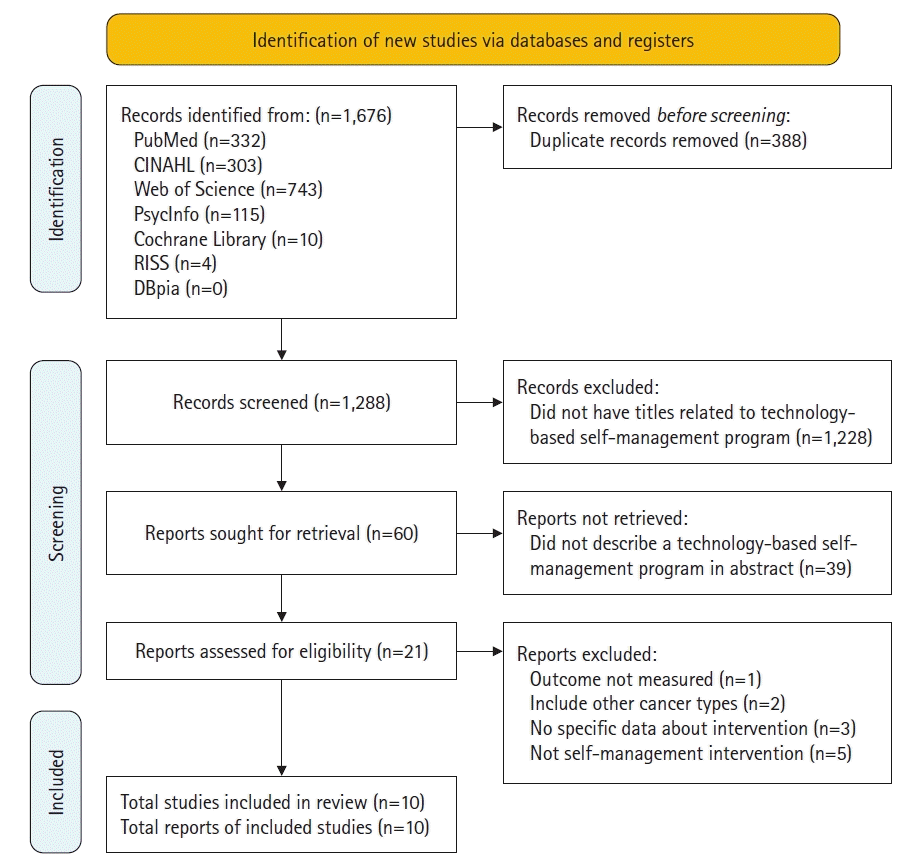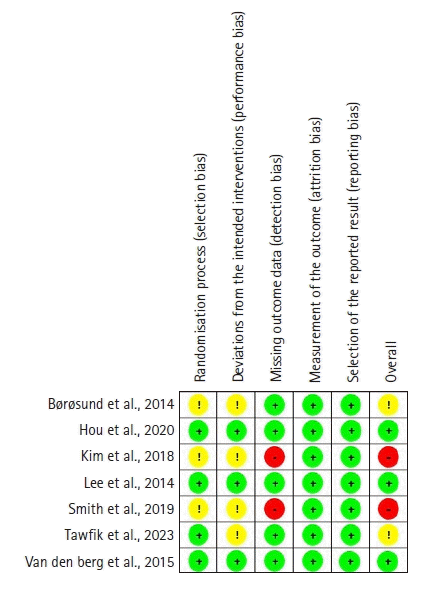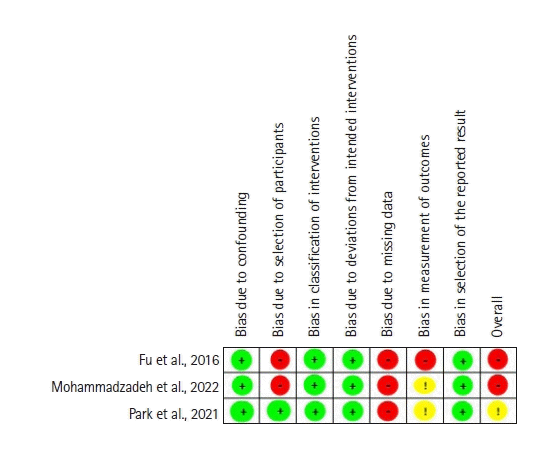3. Lozano-Lozano M, Martín-Martín L, Galiano-Castillo N, Álvarez-Salvago F, Cantarero-Villanueva I, Fernández-Lao C, et al. Integral strategy to supportive care in breast cancer survivors through occupational therapy and a m-health system: design of a randomized clinical trial. BMC Med Inform Decis Mak. 2016; 16(1):150.
https://doi.org/10.1186/s12911-016-0394-0.

4. Triberti S, Savioni L, Sebri V, Pravettoni G. eHealth for improving quality of life in breast cancer patients: a systematic review. Cancer Treat Rev. 2019; 74:1–14.
https://doi.org/10.1016/j.ctrv.2019.01.003.

5. Singleton AC, Raeside R, Hyun KK, Partridge SR, Di Tanna GL, Hafiz N, et al. Electronic health interventions for patients with breast cancer: systematic review and meta-analyses. J Clin Oncol. 2022; 40(20):2257–2270.
https://doi.org/10.1200/JCO.21.01171.

6. James EL, Stacey FG, Chapman K, Boyes AW, Burrows T, Girgis A, et al. Impact of a nutrition and physical activity intervention (ENRICH: Exercise and Nutrition Routine Improving Cancer Health) on health behaviors of cancer survivors and carers: a pragmatic randomized controlled trial. BMC Cancer. 2015; 15:710.
https://doi.org/10.1186/s12885-015-1775-y.

8. Kanera IM, Bolman CA, Willems RA, Mesters I, Lechner L. Lifestyle-related effects of the web-based Kanker Nazorg Wijzer (Cancer Aftercare Guide) intervention for cancer survivors: a randomized controlled trial. J Cancer Surviv. 2016; 10(5):883–897.
https://doi.org/10.1007/s11764-016-0535-6.

9. Rittberg R, Mann A, Desautels D, Earle CC, Navaratnam S, Pitz M. Canadian Cancer Centre response to COVID-19 pandemic: a national and provincial response. Curr Oncol. 2020; 28(1):233–251.
https://doi.org/10.3390/curroncol28010026.

10. Baggott C, Jibb L, Parker R, Stinson J, Linder L. Technology to support the care of children and adolescents with cancer. In : Hinds P, Linder L, editors. Pediatric oncology nursing: pediatric oncology. Springer;Cham: 2020.
https://doi.org/10.1007/978-3-030-25804-7_8.

11. Gorini A, Mazzocco K, Triberti S, Sebri V, Savioni L, Pravettoni G. A P5 approach to m-Health: design suggestions for advanced mobile health technology. Front Psychol. 2018; 9:2066.
https://doi.org/10.3389/fpsyg.2018.02066.

12. Su Z, Li X, McDonnell D, Fernandez AA, Flores BE, Wang J. Technology-Based interventions for Cancer caregivers: concept analysis. JMIR cancer. 2021; 7(4):e22140.
https://doi.org/10.2196/22140.

13. Johnson BA, Lindgren BR, Blaes AH, Parsons HM, LaRocca CJ, Farah R, et al. The new normal? Patient satisfaction and usability of telemedicine in breast cancer care. Ann Surg Oncol. 2021; 28(10):5668–5676.
https://doi.org/10.1245/s10434-021-10448-6.

14. Eyles H, Jull A, Dobson R, Firestone R, Whittaker R, Te Morenga L, et al. Co-design of mHealth delivered interventions: a systematic review to assess key methods and processes. Curr Nutr Rep. 2016; 5:160–167.
https://doi.org/10.1007/s13668-016-0165-7.

15. Helm EE, Kempski KA, Galantino ML. Effect of disrupted rehabilitation services on distress and quality of life in breast cancer survivors during the COVID-19 pandemic. Rehab Oncol. 2020; 38(4):153–158.
https://doi.org/10.1097/01.reo.0000000000000233.

16. Fuemmeler BF, Holzwarth E, Sheng Y, Do EK, Miller CA, Blatt J, et al. Mila Blooms: a mobile phone application and behavioral intervention for promoting physical activity and a healthy diet among adolescent survivors of childhood cancer. Games Health J. 2020; 9(4):279–289.
https://doi.org/10.1089/g4h.2019.0060.

17. Kopp LM, Gastelum Z, Guerrero CH, Howe CL, Hingorani P, Hingle M. Lifestyle behavior interventions delivered using technology in childhood, adolescent, and young adult cancer survivors: a systematic review. Pediatr Blood Cancer. 2017; 64(1):13–17.
https://doi.org/10.1002/pbc.26166.

18. Sansom-Daly UM, Wakefield CE, Ellis SJ, McGill BC, Donoghoe MW, Butow P, et al. Online, group-based psychological support for adolescent and young adult cancer survivors: results from the recapture life randomized trial. Cancers (Basel). 2021; 13(10):2460.
https://doi.org/10.3390/cancers13102460.

19. Glynn LG, Murphy AW, Smith SM, Schroeder K, Fahey T. Interventions used to improve control of blood pressure in patients with hypertension. Cochrane Database Syst Rev. 2010; (3):CD005182.
https://doi.org/10.1002/14651858.CD005182.pub4.

20. Ferdinand KC, Yadav K, Nasser SA, Clayton-Jeter HD, Lewin J, Cryer DR, et al. Disparities in hypertension and cardiovascular disease in blacks: The critical role of medication adherence. J Clin Hypertens (Greenwich). 2017; 19(10):1015–1024.
https://doi.org/10.1111/jch.13089.

21. Zhang A, Zebrack B, Acquati C, Roth M, Levin NJ, Wang K, et al. Technology-assisted psychosocial interventions for childhood, adolescent, and young adult cancer survivors: a systematic review and meta-analysis. J Adolesc Young Adult Oncol. 2022; 11(1):6–16.
https://doi.org/10.1089/jayao.2021.0012.

22. Walsh CA, Rosenberg AR, Lau N, Syrjala KL. Key considerations for advancing the development and testing of mHealth interventions in adolescent and young adult oncology. Psychooncology. 2020; 29(1):220–223.
https://doi.org/10.1002/pon.5216.

23. Wiener L, Canter K, Long K, Psihogios AM, Thompson AL. Pediatric psychosocial standards of care in action: research that bridges the gap from need to implementation. Psychooncology. 2020; 29(12):2033–2040.
https://doi.org/10.1002/pon.5505.

24. Dorri S, Asadi F, Olfatbakhsh A, Kazemi A. A systematic review of electronic health (eHealth) interventions to improve physical activity in patients with breast cancer. Breast Cancer. 2020; 27(1):25–46.
https://doi.org/10.1007/s12282-019-00982-3.

25. Singleton A, Raeside R, Partridge SR, Hayes M, Maka K, Hyun KK, et al. Co-designing a lifestyle-focused text message intervention for women after breast cancer treatment: mixed methods study. J Med Internet Res. 2021; 23(6):e27076.
https://doi.org/10.2196/27076.

26. Li J, Liu Y, Jiang J, Peng X, Hu X. Effect of telehealth interventions on quality of life in cancer survivors: a systematic review and meta-analysis of randomized controlled trials. Int J Nurs Stud. 2021; 122:103970.
https://doi.org/10.1016/j.ijnurstu.2021.103970.

27. Page MJ, McKenzie JE, Bossuyt PM, Boutron I, Hoffmann TC, Mulrow CD, et al. The PRISMA 2020 statement: an updated guideline for reporting systematic reviews. Int J Surg. 2021; 88:105906.
https://doi.org/10.1016/j.ijsu.2021.105906.

28. Melnyk BM, Fineout-Overholt E. Evidence-based practice in nursing & healthcare: a guide to best practice. Philadelphia: Lippincott Williams & Wilkins;2022.
29. Zhu H, Xiao L, Tu A. Effectiveness of technology-based interventions for improving sleep among children: a systematic review and meta-analysis. Sleep Med. 2022; 91:141–150.
https://doi.org/10.1016/j.sleep.2022.02.013.

30. Børøsund E, Cvancarova M, Moore SM, Ekstedt M, Ruland CM. Comparing effects in regular practice of e-communication and Web-based self-management support among breast cancer patients: preliminary results from a randomized controlled trial. J Med Internet Res. 2014; 16(12):e295.
https://doi.org/10.2196/jmir.3348.

31. Hou IC, Lin HY, Shen SH, Chang KJ, Tai HC, Tsai AJ, et al. Quality of life of women after a first diagnosis of breast cancer using a self-management support mHealth app in Taiwan: randomized controlled trial. JMIR Mhealth Uhealth. 2020; 8(3):e17084.
https://doi.org/10.2196/17084.

32. Kim HJ, Kim SM, Shin H, Jang JS, Kim YI, Han DH. A mobile game for patients with breast cancer for chemotherapy self-management and quality-of-life improvement: randomized controlled trial. J Med Internet Res. 2018; 20(10):e273.
https://doi.org/10.2196/jmir.9559.

33. Lee MK, Yun YH, Park HA, Lee ES, Jung KH, Noh DY. A Web-based self-management exercise and diet intervention for breast cancer survivors: pilot randomized controlled trial. Int J Nurs Stud. 2014; 51(12):1557–1567.
https://doi.org/10.1016/j.ijnurstu.2014.04.012.

34. Fu MR, Axelrod D, Guth AA, Rampertaap K, El-Shammaa N, Hiotis K, Scagliola J, Yu G, Wang Y. mHealth self-care interventions: managing symptoms following breast cancer treatment. Mhealth. 2016; 2:28.
https://doi.org/10.21037/mhealth.2016.07.03.

35. Mohammadzadeh Z, Eghtedar S, Ayatollahi H, Jebraeily M. Effectiveness of a self-management mobile app on the quality of life of women with breast cancer: a study in a developing country. BMC Womens Health. 2022; 22(1):446.
https://doi.org/10.1186/s12905-022-02020-5.

36. Park JH, Jung YS, Kim JY, Bae SH. Mobile web-based self-management program for breast cancer patients with chemotherapy-induced amenorrhoea: a quasi-experimental study. Nurs Open. 2022; 9(1):655–665.
https://doi.org/10.1002/nop2.1113.

37. Smith SK, MacDermott K, Amarasekara S, Pan W, Mayer D, Hockenberry M. Reimagine: a randomized controlled trial of an online, symptom self-management curriculum among breast cancer survivors. Support Care Cancer. 2019; 27(5):1775–1781.
https://doi.org/10.1007/s00520-018-4431-7.

38. Tawfik E, Ghallab E, Moustafa A. A nurse versus a chatbot ‒ the effect of an empowerment program on chemotherapy-related side effects and the self-care behaviors of women living with breast cancer: a randomized controlled trial. BMC Nurs. 2023; 22(1):102.
https://doi.org/10.1186/s12912-023-01243-7.

39. van den Berg SW, Gielissen MF, Custers JA, van der Graaf WT, Ottevanger PB, Prins JB. BREATH: web-based self-management for psychological adjustment after primary breast cancer--results of a multicenter randomized controlled trial. J Clin Oncol. 2015; 33(25):2763–2771.
https://doi.org/10.1200/JCO.2013.54.9386.

40. Karakus Z, Ozer Z, Bozcuk H. The effect of web-based education on symptom management and quality of life of patients with lung cancer. Int J Caring Sci. 2022; 15(2):1483–1492.
41. Ruland CM, Andersen T, Jeneson A, Moore S, Grimsbø GH, Børøsund E, et al. Effects of an internet support system to assist cancer patients in reducing symptom distress: a randomized controlled trial. Cancer Nurs. 2013; 36(1):6–17.
https://doi.org/10.1097/NCC.0b013e31824d90d4.

42. Abrahams HJ, Gielissen MF, Donders RR, Goedendorp MM, van der Wouw AJ, Verhagen CA, et al. The efficacy of Internet-based cognitive behavioral therapy for severely fatigued survivors of breast cancer compared with care as usual: a randomized controlled trial. Cancer. 2017; 123(19):3825–3834.
https://doi.org/10.1002/cncr.30815.

43. Sharma S, Kumari B, Ali A, Yadav RK, Sharma AK, Sharma KK, et al. Mobile technology: a tool for healthcare and a boon in pandemic. J Family Med Prim Care. 2022; 11(1):37–43.
https://doi.org/10.4103/jfmpc.jfmpc_1114_21.

45. Chua GP, Tan HK. A qualitative approach in determining the patient-centered information and supportive care needs of cancer patients in Singapore. BMJ Open. 2020; 10(2):e034178.
https://doi.org/10.1136/bmjopen-2019-034178.

48. Shi N, Wong AK, Wong FK, Sha L. Mobile health application-based interventions to improve self-management of chemotherapy-related symptoms among people with breast cancer who are undergoing chemotherapy: a systematic review. Oncologist. 2023; 28(4):e175–e182.
https://doi.org/10.1093/oncolo/oyac267.





 PDF
PDF Citation
Citation Print
Print






 XML Download
XML Download